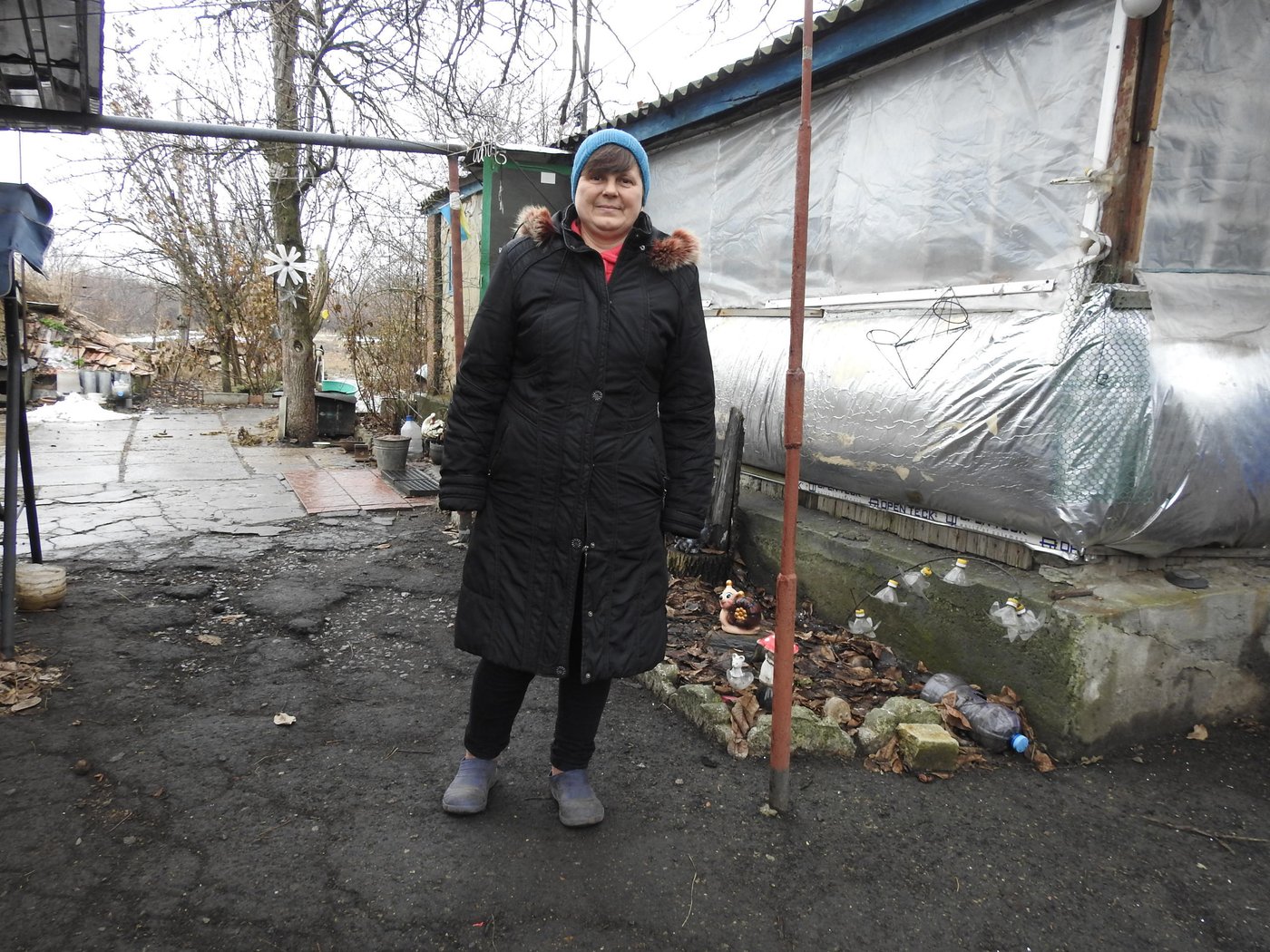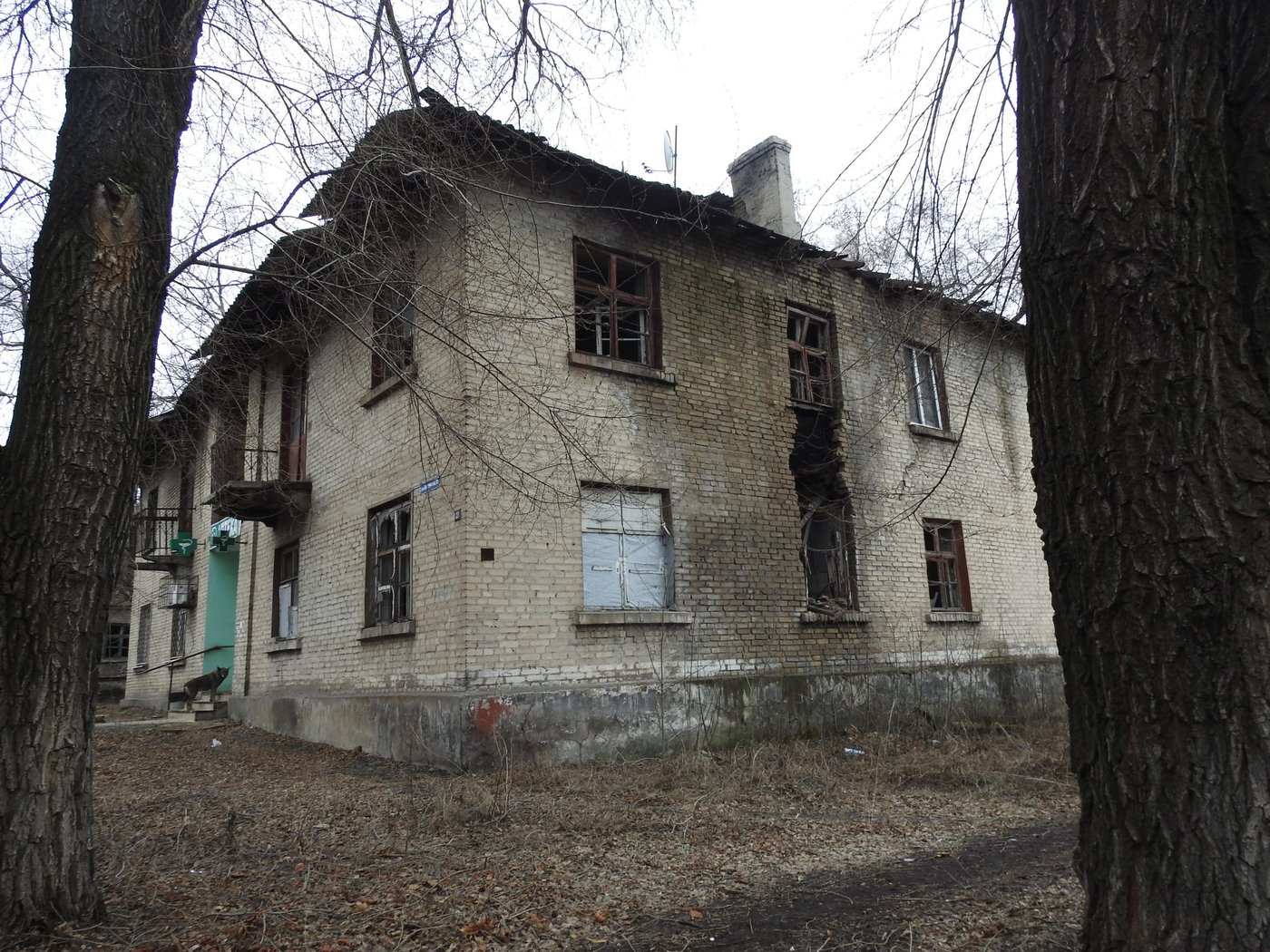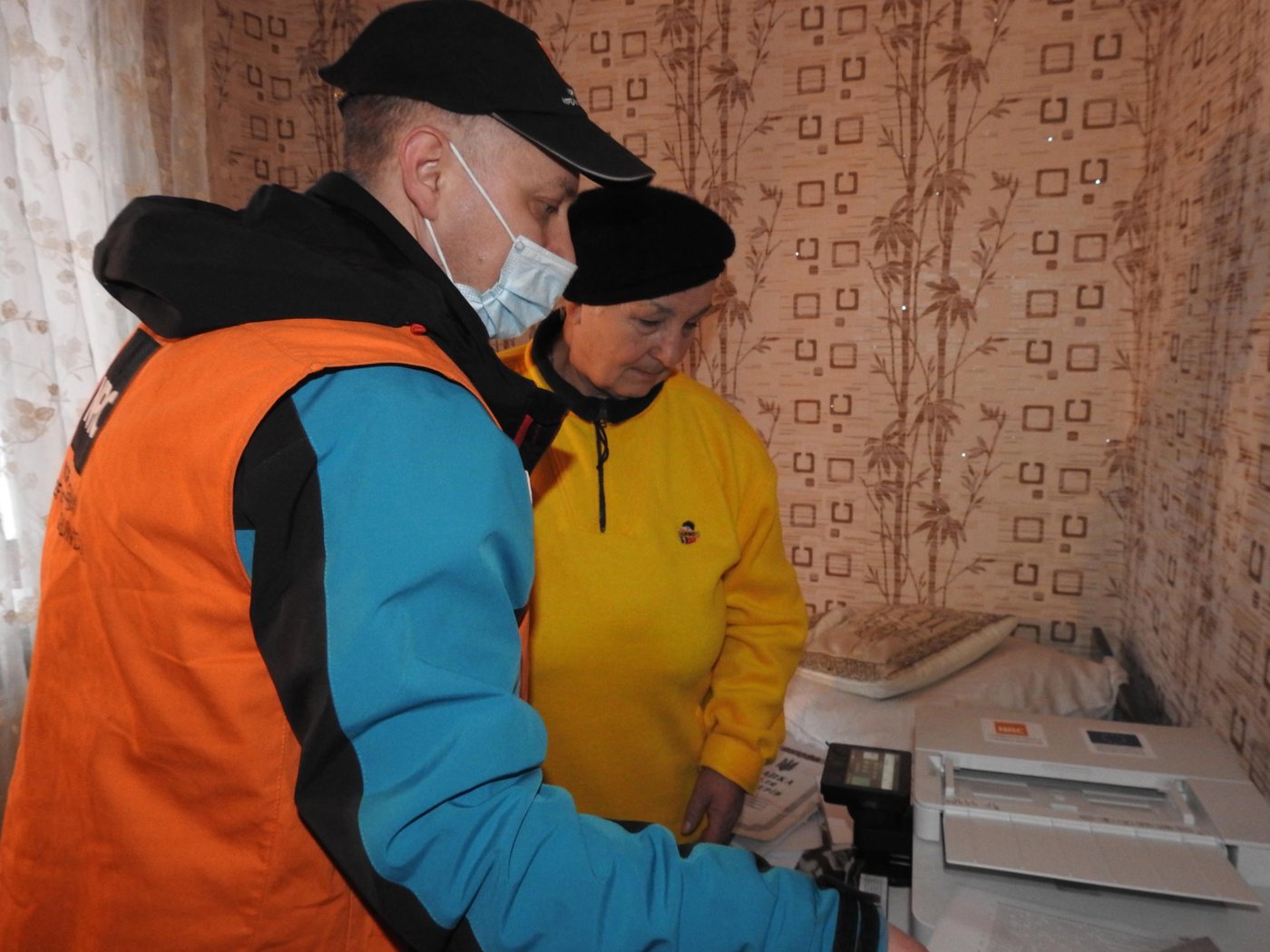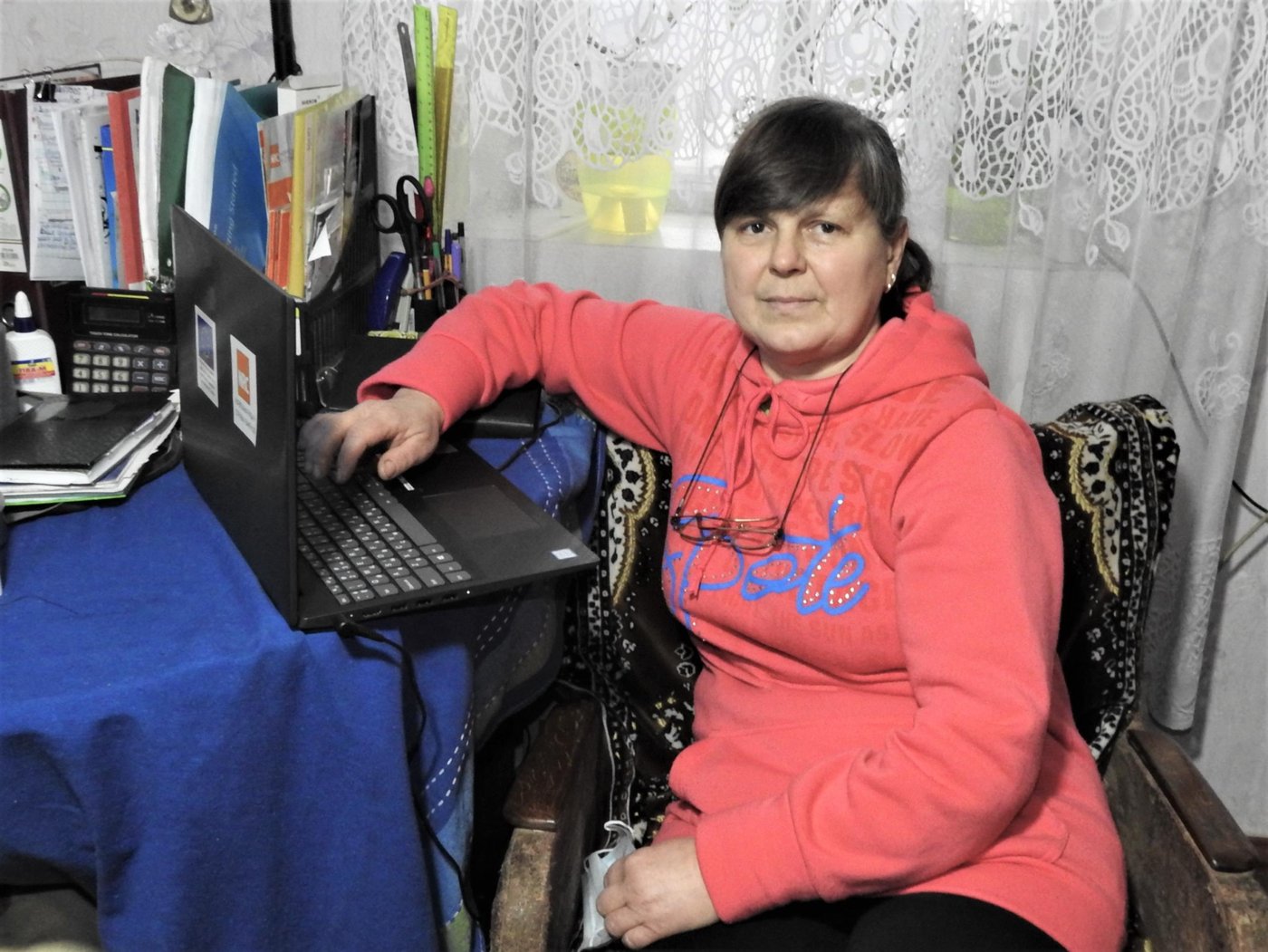Since 2020, she has been volunteering as a “paralegal”, providing information and counselling about legal issues to vulnerable communities in eastern Ukraine and referring them to free legal aid providers.
At least 3.4 million people are in need because of the conflict in eastern Ukraine – a major humanitarian crisis. Two-thirds of those affected are women. And in many areas, women have become the backbone of their communities, contributing to community resilience, peace and development.
According to UN Volunteers, women comprise 60 per cent of the worldwide volunteer movement. Volunteering offers local people a chance to share their existing expertise, skills, and knowledge – and for some, to learn something new.
Since mid-2020, the Norwegian Refugee Council (NRC) has been enabling free legal aid services in communities along the eastern Ukraine frontline via female volunteers called “paralegals”. These paralegals provide essential information and counselling for people living in remote and isolated communities.
NRC works to support refugees and displaced people in over 30 countries around the world, including Ukraine. Support our work today

Svitlana: a local activist
Svitlana Shavlinska, 51, is an internally displaced person from the non-government-controlled city of Pervomaisk. In October 2014, she moved to the village of Orikhove, which lies on the frontline, after heavy shelling damaged her home.
Frontline communities such as Svitlana’s, with a couple of hundred residents, are often isolated and hard to reach. Over the last six years, almost all the young people have left. There is no work. Schools have been closed or re-organised. And despite the current ceasefire, residents frequently hear gunfire during the day.
Since moving to Orikhove, Svitlana has been actively following various humanitarian and development organisations’ activities, attending meetings and proposing her ideas. Last year, she even received two business grants, from the International Committee of the Red Cross and the Danish Refugee Council, to purchase sewing machines.
Some topics are very close to me, as a displaced person with similar pressing issuesSvitlana Shavlinska, volunteer paralegal
“I started providing paralegal services, including Covid-19 awareness-raising sessions, after completing an NRC training course on legal and protection issues. Some topics are very close to me, as a displaced person with similar pressing issues,” says Svitlana.
Since December 2020, Svitlana has assisted around 40 people with legal information on the topics of most interest to the village population: subsidies, inheritance of real estate, pensions and social care.
“Svitlana helped me to issue a death certificate [for my father] and receive state cash assistance for the burial,” says Olha Martovytska, 43, one of the residents who received paralegal support. “She explained the procedure and made a referral to the NRC legal officer.”
“NRC’s support allowed us to appoint my father’s pension to my mother. It was a great help during these difficult times. I would never manage to do all this by myself without assistance. I am very grateful to Svitlana.”
NRC works to support refugees and displaced people in over 30 countries around the world, including Ukraine. Support our work today

Helping communities to protect themselves
Maksym Holtvianytskyi is a technical officer with NRC and has been involved in setting up the paralegal network. He explains: “Despite the Covid-19 pandemic, we managed to train and equip nine paralegals along the frontline, piloting the network in the Luhansk region with European Union support. All of the paralegals are women between the ages of 27 and 72 with different backgrounds and lifestyles.
“We support them with laptops, printers, mobile phones, and all kinds of information materials. This will contribute to NRC’s long-term sustainable support to ensure that protection efforts continue in these communities.”
![Valentyna Bochko, 72, is an officially registered volunteer and devotes all her time to help her fellow villagers. All the life she lives with her husband, who works at a local school, in the village of Nyzhnie. Before retirement, Valentina was the headmaster of that school. She worked there for 40 years.
“People always sought my advice, help, and just a kind word, as the headmaster of the village school. And now they come to me as a volunteer who cooperates with many relief organisations. Even regarding the lack of electricity in the village, they do not turn to the village council, but me.”
She collaborates with HelpAge International specialists, who have told her about the new NRC project.
“Just before you [NRC], a woman asked me to resolve the issue of providing hygiene products to her low-mobility relative. And even though I have nothing to do with such things at first glance, I will still help. I have already contacted one local humanitarian organisation that previously provided such assistance,” says Valentyna.
As an NRC paralegal, Valentina shares the knowledge, gained during a series of training, with her fellow villagers, disseminating legal information.
“People come up to me in the market or the store. Anyway, everyone in the village has my phone number. Now, especially with the coronavirus, few people come in person, they call more, asking various questions. The most popular topics are the subsidies and the assignment of a child’s status affected by the military conflict.”
The village, where Valentina lives, combines three smaller parts, where about 2,000 people live; about 50 of them are displaced.
“They are all I have got. People say that I am the most reliable person from whom you can get real help. Of course, there are several issues that I cannot solve without professional intervention. In such cases, I make referrals to NRC specialists. Moreover, there are already about ten such cases. Usually, these are complex issues, for example, refusal to pay compensation for destroyed housing, the documents for which remained in the uncontrolled territory,” explains Valentyna.
Despite her age, Valentina is actively mastering the equipment and not going to stop.
“I love this business. And I am not afraid that I do not receive money at all. Sometimes there is a backlog. But my husband helps to compose lists, prepare printed copies. And I negotiate with the village council, if a place is needed for holding meetings with the community for humanitarian organisations or prepare announcements of such events.”
Photo: Violetta Shemet/Norwegian Refugee Council](/cdn-cgi/image/width=1400,format=auto,fit=crop,height=1050/globalassets/images/countries/ukraine/2021/the-volunteers-helping-their-neighbours-access-their-rights/dscn9087.jpg)
Valentyna Bochko, 72, is an officially registered volunteer and devotes all her time to helping her fellow villagers. She lives with her husband in the village of Nyzhnie. Before retirement, Valentyna was the headteacher of the local school, where she worked for 40 years.
“People always sought my advice, help and just a kind word when I was the headteacher of the school. And now they come to me as a volunteer who cooperates with many relief organisations,” she says.
“Just before you [NRC] came, a woman asked me to help with hygiene items for her relative who has mobility problems. And even though I have nothing to do with such things at first glance, I will still help.”
A collective effort
Local volunteer networks proved to be a good source for recruiting paralegals. “We coordinated activities with HelpAge International, also supported by the European Union, to identify proactive and diligent сandidates,” says Holtvianytskyi. “Together we have been able to provide holistic protection services in hard-to-reach and isolated communities.”
As an NRC paralegal, Valentyna shares the knowledge she gained during her training with her fellow villagers.

“People come up to me in the market or the store,” says Valentyna. “Everyone in the village has my phone number. Now, with the coronavirus, people mainly call, asking various questions. The most popular topics are the subsidies and the status of children affected by the armed conflict.”
“I love this work”
The village where Valentyna lives is made up of three parts with about 2,000 residents in total, including up to 50 displaced people.
“They are all I have got,” she says. “People say that I am the most reliable person for giving real help. Of course, I cannot solve all the issues without professional intervention. In such cases, I refer to NRC legal specialists. Usually, these are complex issues; for example, a rejection of compensation for destroyed housing where the documents remain in the uncontrolled territory.”
Despite her age, Valentyna is working hard and has no plans to stop.
“I love this work. And I do not care that I do not get paid at all. I negotiate with the village council if a place is needed for holding meetings with the community and prepare announcements of such events. Sometimes there is a backlog. Then my husband rushes to help me with composing lists and printing copies.”
***
The NRC paralegal network in the Luhansk region consists of nine volunteers. As of 1 April 2021, they had assisted 1,150 people and made 163 referrals to NRC legal officers, and 59 referrals to other institutions. A similar network is being launched in the frontline communities of the Donetsk region, with 10 volunteers on board.


